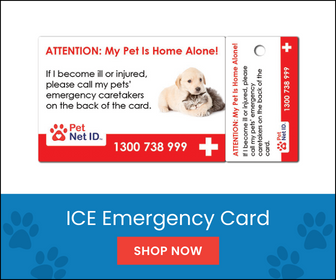
Licking Lips or Licking the Air in Dogs – Related Illnesses
If your pet is experiencing with licking lips or licking the air, there are numerous potential sickness which can trigger licking lips or licking the air in dogs.
Licking Lips or Licking the Air in dogs can cause visible changes in your canine’s overall health as well as attitude.
Knowing the licking lips or licking the air in dogs is the first measure in safeguarding your pet dog’s health.
We have actually listed some of the usual sickness in dogs when they are experiencing licking lips or licking the air. Please click on the links of diseases below to read more.
| Dog Illnesses & Health Conditions |
|---|
| Upset Stomach in Dogs |

Recognising Signs And Symptoms Including Licking Lips or Licking the Air in Dogs
Monitor your pet dog’s daily activity – Always keep a journal of when your dog relieves himeself or herself, when his signs and symptoms happen, when he or she drinks and eat, and so forth.
This helps to establish a pattern to the signs and symptoms. It can likewise be a very helpful tool for the veterinarian to identify your pet dog’s health issues.
If your canine is slightly sick (not eating the best for a day, troubled, vomiting one or two times, a bout of diarrhea) you can carefully observe your pet dog in your home and phone your vet for suggestions.
Seek prompt vet attention with specific signs and symptoms – There are several severe symptoms that need immediate medical attention. Do not wait on these symptoms and call your veterinarian as soon as possible:
- Known intake of a hazardous compound.
- Unconsciousness.
- Unrelenting vomiting and also looseness of the bowels.
- Respiration troubles.
- Profuse blood loss.
- Seizures that do not cease within one min.
- New or recurring symptoms in a pet with a health problem (diabetes, Addison’s disease, etc).
- Unable to urinate or not producing pee.
- Large swellings around the face, eyes or throat.
- Fractured bones.
Obtain suggestions from your vet on less extreme symptoms – Some symptoms of health problem in dogs can be unpleasant for canine and may show health conditions that need to be dealt with. Call your veterinarian to get recommendations on dealing with the following symptoms:
- Occasional vomiting and looseness of the bowels lasting much longer than 1 day.
- Isolated seizure that lasts less than one min.
- Lethargy lasting longer than someday.
- Fever.
- Lumps or bumps that all of a sudden appear or current ones that grow.
- Not taking food for greater than 1 day.
- Limping or acting uncomfortable.
- Problem excreting.
- Excessive drinking.
- Swelling which appears on progressively.
- Any other weird symptom or behavior (shivering or sobbing).
Pay attention to your pet dog’s demeanor – A pet owner can tell a great deal by paying attention to the canine’s behavior including things like exactly how he or she is actually feeling. You’ll need to make certain his health and wellness is gradually improving as well as reacting to treatment. As an example, your family pet ought to start to wag his tail, pay attention to you and get up to welcome you.
If he or she cheers up and begins wanting food, then it is good signal to suggest he/she is getting better.
On the other hand, if you notice your canine is becoming less interactive or simply lying still, she or he probably be getting worse and need medical treatment.
Observe your dog’s breathing – It is good to watch the breathing pattern of your pet and it can tell you tell you a lot about exactly how your canine feeling. If your pet dog is in pain or dealing with some type health issues, he may breathe heavily or pant.
In the majority of situations, coughing and heavy breathing are indications of a chest infection. You must additionally keep an eye on your pet’s gum tissues if his breathing causes big chest movements.
The gums in your canine’ mouth should be pink and healthy and balanced. If the periodontals look tinged blue or pale, get in touch with the vet. Your pet dog might not be getting sufficient oxygen and could be in breathing distress.
You can additionally keep an hourly record of your pet’s breathing. Typically your pet take about 20 to 30 breaths per minute. If your dog’s breathing rate increases progressively, his or her health issue has actually worsened and you need to get in touch with the veterinarian.





